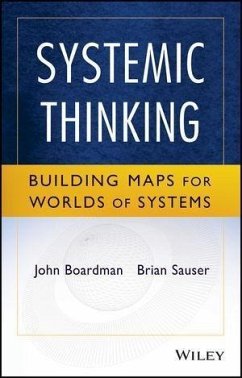
Managing and Engineering Complex Technological Systems (eBook, PDF)
Versandkostenfrei!
Sofort per Download lieferbar
105,99 €
inkl. MwSt.
Weitere Ausgaben:

PAYBACK Punkte
0 °P sammeln!
Presents the origins and evolution of the systems engineering discipline and helps readers gain a personal familiarity with systems engineering experts: their experience, opinions and attitudes in this field This book is based on a qualitative study that includes dozens of in-depth interviews with experts in the systems engineering field. This book is broken into three main parts. The first part is a general overview of the systems engineering field. The second part discusses the changes the systems engineering discipline has undergone with the analysis as case studies of two significant Israe...
Presents the origins and evolution of the systems engineering discipline and helps readers gain a personal familiarity with systems engineering experts: their experience, opinions and attitudes in this field This book is based on a qualitative study that includes dozens of in-depth interviews with experts in the systems engineering field. This book is broken into three main parts. The first part is a general overview of the systems engineering field. The second part discusses the changes the systems engineering discipline has undergone with the analysis as case studies of two significant Israeli defence systems projects: the IAI Lavi project and the Iron Dome project. The third part of this book contains interviews with renowned experts in the systems engineering field. This part is divided into five sections: systems engineering as the answer to the challenges of a complex technological world - the aerospace industries; the development of systems engineering in the commercial and industrial worlds, and in complex civil systems; the impact of the accelerated development of the computing world on systems engineering processes; systems engineering and the academic world; and systems engineering in the world of training and consulting. This book presents the main insights derived from the interviews, and an analysis and discussion of the question of the relevance of systems engineering to the management world. Some highlights of this book are that it * Integrates the technological aspects with the behavioural aspects of the field * Serves managerial needs of engineering and management in general, so managers with no technical background can derive knowledge from this book * Provides approaches for seeing beyond technology-understanding the mission Managing and Engineering Complex Technological Systems is a great resource on management for managers as well as systems engineers.
Dieser Download kann aus rechtlichen Gründen nur mit Rechnungsadresse in A, B, BG, CY, CZ, D, DK, EW, E, FIN, F, GR, HR, H, IRL, I, LT, L, LR, M, NL, PL, P, R, S, SLO, SK ausgeliefert werden.













